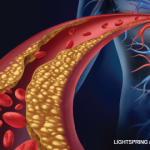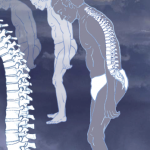The selective theory of COX inhibition took hold of us. We were smitten. Because COX enzymes were found in just about every human tissue, these drugs were studied in myriad diseases. Although they failed to slow the progression of Alzheimer’s disease, they showed efficacy in preventing the development of certain forms of inherited adenomatous polyps that required COX-2 to grow. Every major pharmaceutical company had similar drugs in their development pipelines. This was supposed to be the dawning of a new era.
Dawn Fades to Dusk
Perhaps we should not have been astonished to see how quickly dawn faded to dusk. After all, it was long known that aspirin use provided significant antithrombotic effects. For example, one of the first anticoagulants, dicumarol, was found to spontaneously metabolize to salicylic acid. More than 60 years ago, Dr. L.L. Craven, an astute otolaryngologist practicing in Glendale, Calif., observed that his tonsillectomy patients who chewed an aspirin-containing gum excessively tended to bleed more profusely after their surgery. He reasoned that aspirin might be useful in preventing myocardial infarction (MI) and began treating all his older male patients with it.
In two astonishingly prescient papers, both published in the Mississippi Valley Medical Journal, Dr. Craven claimed that none of the 8,000 men he had treated during his years in practice had succumbed to either an MI or a stroke.4 Who needs randomized, controlled studies when the data is so good? Ironically, Dr. Craven himself died of an MI a year following the study’s publication. Yes, he was an aspirin user.
For many years, it remained unclear whether NSAIDs or selective COX inhibitors provided a similar benefit. Nearly a decade ago, the answer came crashing down. A major study of the selective COX-2 inhibitor, rofecoxib, in preventing adenomatous polyps found the drug highly effective.5 The really bad news was that there appeared to be a spike in the incidence of cardiovascular adverse events in the treated patients. Actually, this spike turned into a flood. It has been estimated that rofecoxib may have accounted for an excess of 88,000 to 140,000 cases of serious heart disease over the course of its few years on the U.S. market.6
It soon became apparent that all NSAIDs and COX-2 inhibitors lacked the highly beneficial and sometimes lifesaving effect of aspirin on the production of TxA2. Playing with TxA2 levels, the rabbit aorta contracting substance, was clearly life contracting for some patients.

